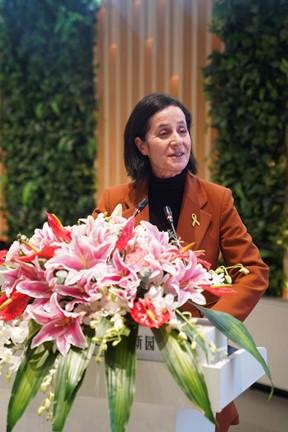Israel wants Chinese investment, ambassador says

Israel wants Chinese investment, ambassador says.
Israel's ambassador to China has asked for Chinese investors to step up their activity, despite the escalating crisis in Gaza; Emerging technologies and research mentioned as ripe areas for entrepreneurs to guide inflows
Israel's ambassador in China has called on entrepreneurs to strengthen investment in her country, particularly in emerging sectors including food tech – even as the crisis in the Gaza Strip intensifies and bilateral ties come under threat.
The Israeli economy has remained durable despite the deadly conflict with militant Islamist group Hamas and more Chinese investors would be welcome, said Irit Ben-Abba Vitale at a new year celebration in Shanghai earlier this week.
"Our economy is very resilient. We hope that all those companies that are involved in investment or trading or have any kind of economic activities in Israel continue to do so," she said at a gathering with Israeli diplomats, the business community and the media at the China-Israel Innovation Hub on Tuesday.
The remarks were made at a time when the war and Beijing's reluctance to publicly condemn Hamas have clouded relations. China is Israel's second-largest trading partner after the United States.
Chinese companies were encouraged to invest more in sectors including food technology, energy, climate technology, and life sciences as the Middle Eastern country's Innovation Authority approved a budget for 2024 that put a strong emphasis on those areas earlier this week, Vitale said.
"On all these emerging technologies, we're very interested in collaborating with China," she said. " … For China, Israel is maybe not a very big market, but these days any market is a good one."
China has become more involved in the Middle East in recent years via its Belt and Road Initiative and other trade and infrastructure agreements as relations with the US-led West have frayed.
Despite the Covid-19 pandemic, Vitale said, 2022 was "the best year" for bilateral trade between China and Israel, with total volume hitting US$25.45 billion, up 11.6 per cent from a year earlier.
That followed a decade of deepening economic ties, notably with an escalation of Chinese direct investment in advanced technology and infrastructure in Israel.
Vitale said her country spends 5.6 per cent of its gross domestic product on research and development, double the average of countries in the Organization for Economic Cooperation and Development.
Trade volume stemmed largely from Israel's imports of goods from China, which more than doubled from US$7.6 billion in 2013 to US$16.5 billion in 2022, according to Chinese government data.
Beijing has long tried to take a balanced position on the Israel-Palestine question by supporting Palestinian statehood while also maintaining strong economic ties with Israel.
But China's lack of denunciations for Hamas, its criticism of Israel over the worsening humanitarian crisis in Gaza – as well as some anti-Israel rhetoric on Chinese social media – have compounded tensions between Beijing and Tel Aviv.
Israel is facing its most difficult time, Vitale said.
